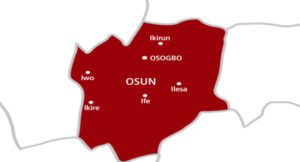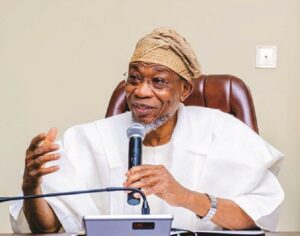


Tinubu’s bold agenda: Revitalising Nigeria, promoting sustainability
By Rafael Agbajo
President Bola Tinubu’s assumption of office on May 29, 2023, came at a critical juncture in Nigeria’s history, characterised by a multitude of challenges. His bold inaugural declaration, “Subsidy is gone,” heralded a significant departure from previous policies, signalling a pivotal shift in the nation’s economic strategy. Determined to confront these challenges head-on, Tinubu’s administration wasted no time in initiating a series of essential reforms aimed at stabilising and propelling Nigeria towards sustainable development. The one year has been marked by a resolute commitment to addressing Nigeria’s pressing challenges and steering the country towards a brighter future
Despite the commendable progress made by the preceding administration under President Muhammadu Buhari, particularly in infrastructure development, economic reform, security, and anti-corruption measures, Nigeria continued to grapple with persistent economic challenges that threatened its growth and development trajectory. Recognising the pressing need for decisive action, Tinubu swiftly identified the urgency for bold economic interventions to rescue the economy from further decline.
In his inaugural year, Tinubu pursued a bold agenda focused on comprehensive economic reform, infrastructure development, and governance enhancement. Key among his administration’s initiatives were the removal of fuel subsidies and the unification of the exchange rate, both of which were pivotal steps towards fostering sustainable economic growth and stability. These decisive measures aimed to address longstanding economic distortions and restore investor confidence in Nigeria’s economy.
As Nigeria undergoes the process of adapting to these transformative changes, Tinubu’s administration remains steadfast in its commitment to instilling hope and ensuring the country’s continued advancement on the global stage. With a vision centred on the concept of “Renewed Hope,” Tinubu campaigned on a platform dedicated to addressing the nation’s economic challenges, enhancing security, and improving governance.
At a ministerial retreat convened to delineate the administration’s core priorities, Tinubu outlined a comprehensive framework aimed at driving progress across various sectors. By January 15, 2024, the administration redefined its goals, articulating eight priority areas in a circular issued by the office of the Secretary to the Government of the Federation. These areas encompassed economic reform, national security, agriculture, energy, infrastructure, education, healthcare, social investment, industrialisation, digitisation, creative arts, manufacturing, innovation, and governance improvement.
Approaching the one-year milestone of Tinubu’s administration presents an opportune moment to assess its achievements and impact. As Nigeria navigates through a period of profound transformation, Tinubu’s leadership and decisive actions stand poised to shape the nation’s trajectory towards sustainable development and prosperity for all its citizens.
President Tinubu’s administration, at inception, placed significant emphasis on economic reform and development, implementing various initiatives over the past year to stimulate growth and stabilise the financial environment. One of the most notable actions was the removal of fuel subsidies at the beginning of his tenure, aimed at reducing government expenditure and reallocating funds to critical sectors like infrastructure and social services.
Despite facing initial resistance, this policy shift is intended to establish a more sustainable economic framework and has paved the way for innovative solutions such as the introduction of electric and Compressed Natural Gas-powered vehicles to the economy.
Since June 2023, there has been a notable improvement in the Federation Account Allocation Committee (FAAC), with states and local governments receiving increased allocations to meet their financial obligations. Under Tinubu’s leadership, no state has reported difficulties in paying salaries.
For instance, in May 2023 when he assumed office, the total disbursement from the FAAC stood at N976.34 billion, but after the removal of subsidies, it rose significantly to N1,134.03 trillion in June 2023. This trend has continued, with a total of N1,208.081 trillion shared among the Federal Government, states, and local government councils in April 2024, reflecting increased revenue generation.
Another bold move by President Tinubu was the unification of the exchange rate, aimed at attracting foreign investment and enhancing economic transparency. Despite facing challenges initially, such as the Naira reaching an all-time high of nearly N2,000 to a dollar due to speculative activities and cryptocurrency trading, the government successfully clamped down on speculators, including platforms like Binance and others engaged in Peer-to-Peer trading. As a result, the Naira has experienced more stability, and in April, it emerged as the best-performing currency globally, bolstered by positive sentiment from leading international investors.
Furthermore, President Tinubu’s administration has prioritised infrastructure development, particularly in the transportation and energy sectors. Projects such as road network expansion, airport modernisation, and improvements to the national power grid have been undertaken to ensure a more reliable electricity supply and enhance connectivity across the country. These infrastructure investments are vital for facilitating economic growth, attracting investment, and improving the overall quality of life for Nigerians.
On security, which has been a major concern in Nigeria, President Tinubu’s administration has made strides in improving the security situation in the country. Banditry and kidnapping were the order of the day in the days before his swearing-in. On assumption of office, the president has been able to pull his weight as the Commander-in-Chief of the Armed Forces. Today, the security situation is improving, as the administration keeps getting applause from both local and international observers. Not that it is yet Uhuru, but the approach by the security apparatuses had given hope of better days ahead. The speed at which those kidnapped were being rescued showed that intelligence gathering has been improved upon. The military too is making more efforts in decapitating the remnant of the insurgents. If the tempo is sustained, Nigeria is on its pathway to greatness.
On infrastructure and transport, the third agenda of the administration, the President Tinubu government has kept improving the infrastructure it met on the ground. Kudos must be given to the immediate-past administration of former President Muhammadu Buhari for the construction of the Second Niger Bridge, dualisation of the Lagos-Ibadan highway, Abuja-Kaduna road, among many others and the revival of the train services on the Lagos-Ibadan, Abuja-Kaduna, and Warri-Itakpe route. On assuming office, the president told the Minister of the Federal Capital Territory, Nyesom Wike, that he would like to ride the Abuja Metro Line. On May 29, the rail line would be officially flagged off for commercial services. On road construction, President Tinubu meant business. Aside from the Lagos-Calabar coastal highway, a massive ambition of the administration, the government is launching big on the reconstruction of roads across the country. Also, the government continued with the projects inherited from the previous administration. The Ministry of Marine and Blue Economy was created for another infrastructural growth.
On the diversification of the economy, the government is setting its focus away from oil, by boosting businesses and industries. Recently, the management of the Chinese giant, CCECC, was in the State House and discussed venturing into Lithium extraction and production. There is a Lithium factory in Nasarawa State at the moment. Also, the government is looking into other sources of income for the economy, to boost the economic growth of the nation.
For the Energy and Natural Resources, the government has reiterated its commitment to the turnaround of the refineries. Both Kaduna and Port Harcourt refineries are coming on stream. The government has also invested so much in the security of its pipelines and this has helped oil production in the country. Also, the government is diversifying and getting more focus on gas. With the removal of subsidy on petrol, the government has launched many gas projects across the Niger Delta area, to help its consolidation plan for the era of gas in the country. The government is investing to make available Compressed Natural Gas, Liquefied Pressure Gas, and others, to aid transportation and boost the economy. Many CNG stations are springing up and the government during the first anniversary is distributing gas-powered vehicles to states. The Executive Order on Oil and Gas is also yielding results.
Agriculture and Food Security, the Nigerian government signed a memorandum of understanding with John Deere on the supply of around 2,000 tractors yearly for the next five years. This will increase agricultural productivity. The tractors will be sold under a financing agreement, allowing farmers to acquire them. Also the introduction of Special Agro-Industrial Processing Zones to concentrate agro-processing activities within areas of high agricultural potential to boost productivity and the grant by the African Development Bank of $134m to Nigeria to cultivate rice, maize, and others. These initiatives will contribute to improving food security in the country. The government is massively cultivating wheat at the moment. Then, there is the fertilizer fund by the Central Bank of Nigeria to help farmers.
On education, as promised, President Tinubu has facilitated strategies to improve the standard of our educational institutions. There is an ongoing school census, for primary and secondary education, to know the state of the facilities. Also on Friday, May 24, the much-anticipated Student Loan Scheme came alive. The scheme will help the students to get tuition as a loan and repay after graduation. This will help concentration on studies. On health, the government is revamping the health sector with massive funding. The government is also looking at the welfare of the health professionals. On Social Investment, the government launched various schemes to cushion the effects of the petrol subsidy removal. Grants to SMEs, and business loans, among others are examples of such benefits. The Federal Government, through the Ministry of House, also launched the Renewed Hope Home Scheme. As a Nigerian, you can apply to own a house from the numerous sites where the scheme is taking place. To improve affordability, it is also possible to apply for the release of 25 percent Pension fund for those in the Contributory Pension Scheme.
On Improved governance, President Tinubu has brought the government closer to the people. A recent example is the outcry over the inauguration of governing boards of tertiary institutions in the country. The president ordered the review of the boards, after halting the process. Also, the administration is planning to streamline the ministries, departments and agencies, to make room for robust participation in government. In addition to economic reform and infrastructure development, President Tinubu has placed a strong emphasis on improving governance and transparency. Recognising the importance of accountability in fostering public trust and confidence, his administration has taken steps to strengthen institutions, streamline bureaucratic processes, and combat corruption at all levels of government. These efforts are essential for creating an environment conducive to investment, entrepreneurship, and sustainable development.
Moreover, Tinubu’s administration has demonstrated a keen awareness of the interconnected nature of global challenges and opportunities. By actively engaging with the international community on issues ranging from climate change to trade, Nigeria, under his leadership, is positioning itself as a responsible global actor and seeking to leverage its influence for the benefit of its citizens.
As President Tinubu approaches the one-year milestone of his tenure, the nation stands at a critical juncture poised for transformative change. While significant progress has been made, much work remains to be done. However, with strong leadership, bold vision, and unwavering commitment to the people of Nigeria, President Tinubu’s administration holds the promise of delivering tangible and lasting improvements that will shape the nation’s future for generations to come.
Agbajor, a social commentator, writes in from Abuja



